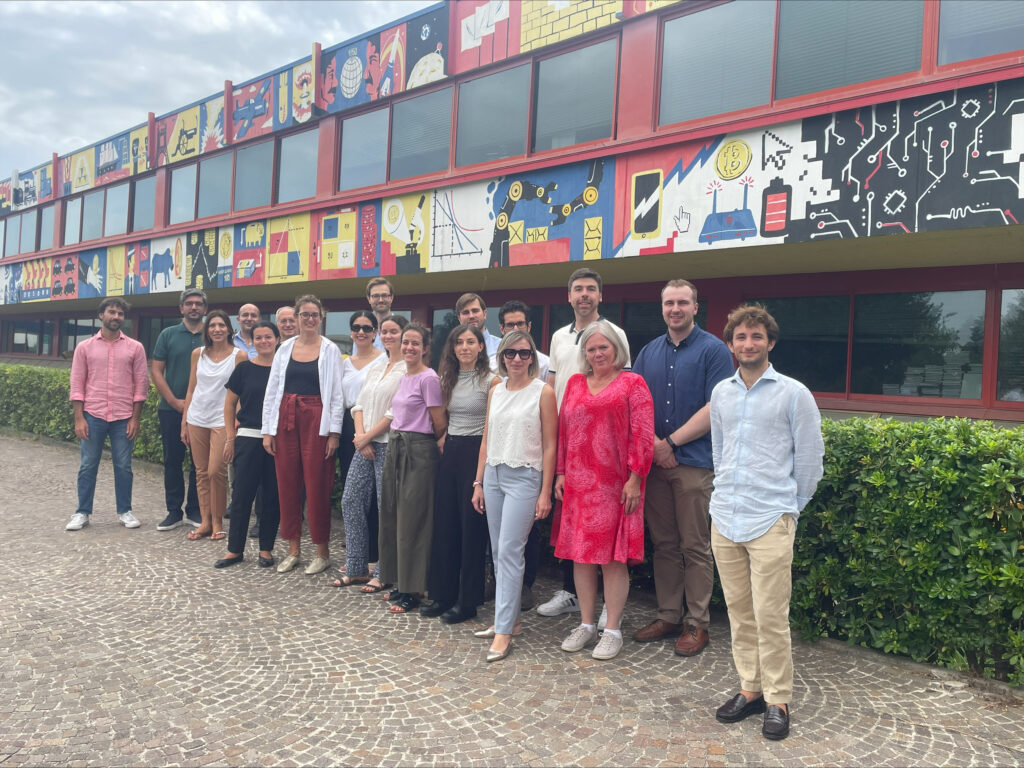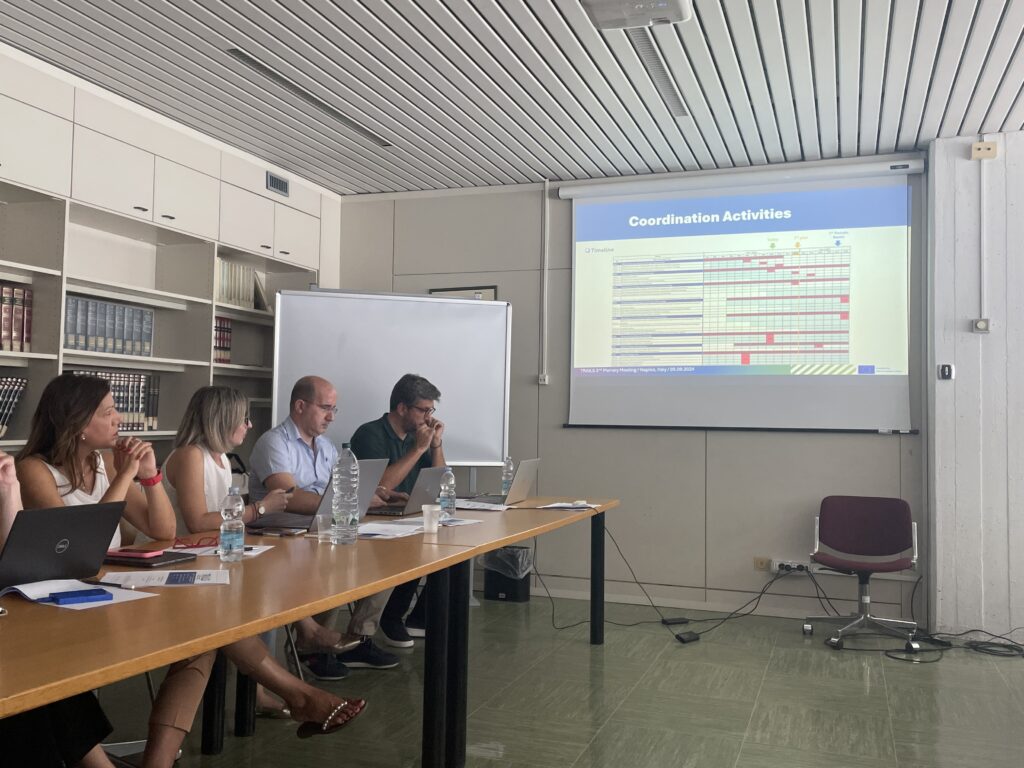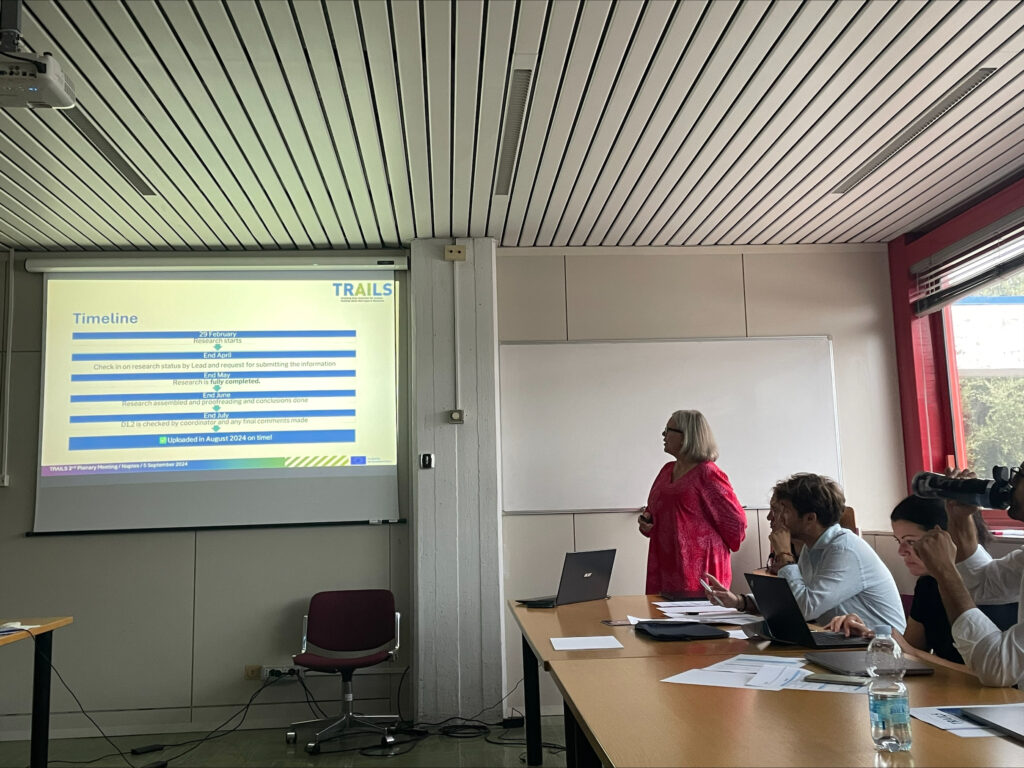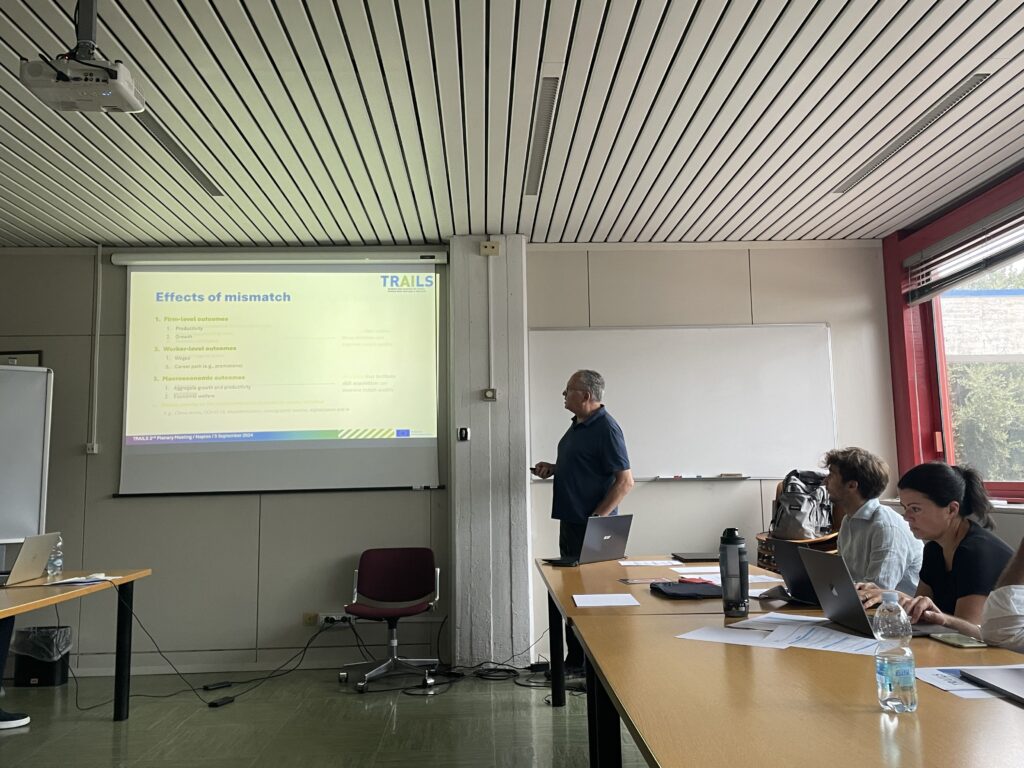Second TRAILS Partners Meeting at Università degli Studi di Napoli Federico II
11/09/2024

On Thursday, 5th September 2024, the second Transnational Partners’ Meeting for the TRAILS – Enabling data analytics for actions tackling skills shortages & mismatch Horizon Europe EU-funded project was held at the Università degli Studi di Napoli Federico II, Centre for Economics and Finance (CSEF), in Naples, Italy. This gathering brought together representatives from all consortium partners to review progress, address management challenges, and plan future steps across various Work Packages (WPs) essential to achieving the project’s objectives.
Ioannis Pragidis (DUTH), the TRAILS project coordinator, welcomed the participants and praised the partners for their excellent collaboration in producing high-quality research and effectively addressing any challenges that have arisen. This was followed by an outline of the meeting’s goals, focusing on assessing developments made during the first nine months and preparing for detailed discussions on each WP. As the project progresses into its tenth month, several deliverables have already been completed on schedule. The consortium then reviewed key milestones reached in the initial phase and examined any management issues that had arisen, proposing strategies to ensure the project’s steady advancement.



The agenda resumed with a session on state-of-the-art research and tool requirements. Presentations were given on three pivotal deliverables (1.1, 1.2, and 1.3), followed by a discussion to address any unresolved topics and concerns. EARLALL has led the “D1.2 Innovative initiatives for tackling skills shortages and mismatch in Europe”. This deliverable lists 92 initiatives at the regional, national, EU, and international levels and discusses their relevance and possible links to TRAILS. The presented initiatives use digital applications (online platforms, digitalised aspects) to promote upskilling. In this way, the potential gaps in current regional, national and international initiatives to tackle skills shortages are outlined and TRAILS potential role is highlighted. It also reviews other related EU-funded projects and proposes avenues for cooperation.
The meeting proceeded with a focus on Data Management and Survey Design (WP2), during which Deliverables 2.1, 2.2, and 2.3, which count will the involvement of the EARLALL Secretariat. Next, the impact of technological changes, mismatches in skills, and on-the-job training (WP3) was explored, centring around Deliverable 3.1.
The following segment covered the use of Machine Learning (ML) and Artificial Intelligence (AI) for aligning skills with labour market needs (WP4), and new approaches to skills development, bundling, and workforce mobility (WP5). Both discussions focused on significant tasks, key milestones, and strategies to resolve outstanding issues.
The meeting concluded with a session on Dissemination and Business Planning (WP6), lead by the EARLALL team. This part involved addressing questions related to content creation and video production for the project, as well as defining the next steps to ensure effective system integration.
In the closing remarks, the importance of ongoing collaboration and clear communication was reiterated. The third project meeting is scheduled to take place in Spring 2025, hosted by Aristotle University of Thessaloniki.




